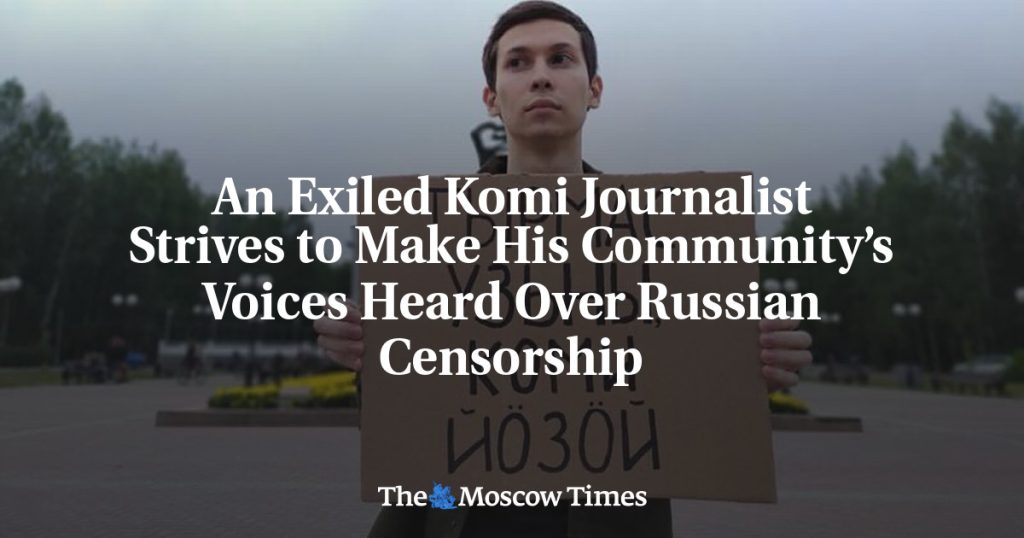Valera Ilinov, an exiled native of Russia’s republic of Komi, expressed his desire to return home but realized it could lead to imprisonment due to fines he faced for violating censorship laws. The founder of Komi Daily, a news outlet in Komi, was fined for anti-war statements discrediting the Russian military and inciting hatred toward Russians. Despite identifying as Komi, he was ethnically classified as Russian, leading to legal consequences for his journalism. The fines were not directly related to the outlet’s content, highlighting the challenges faced by independent media in Russia.
Growing up in Komi, Ilinov’s interest in journalism and his heritage were influenced by the events surrounding Ukraine’s Revolution of Dignity in 2013-2014. Exposure to Russian propaganda about oppressed Russian-speaking people in Ukraine led him to question his identity, eventually identifying more with his Komi roots. His engagement in politics, including participation in anti-corruption protests, led him to create Komi Daily in 2018, focusing on Komi culture and identity. However, disillusionment with Russia’s political system and lack of change at the grassroots level led him to eventually leave political party involvement.
Komi Daily, initially a personal blog on social media, evolved into a media outlet dedicated to Komi culture and identity. The outlet’s stance became anti-war following Russia’s invasion of Ukraine, resulting in loss of audience and government censorship, including a page block on VKontakte. Despite facing challenges, Ilinov remains committed to producing decolonial media, emphasizing the importance of including voices connected to Komi in the storytelling process. He believes that in Russia’s climate of political repression and war, journalistic objectivity is intertwined with activism to promote values and take a stand.
After the invasion of Ukraine, a group of volunteer journalists joined Ilinov to expand Komi Daily’s coverage, focusing on Indigenous communities and Russian colonialism. The outlet’s stance on the war led to a shift in its audience composition, attracting individuals interested in Komi culture, diversity, and different Russian regions. Despite losing readers due to its political position, Ilinov maintains that producing unbiased journalism in the current climate is akin to echoing propaganda. He affirms the necessity of activism in journalism in modern Russia, where the line between journalism and activism is blurred due to political repressions.
As an independent news source, The Moscow Times, facing unjust labeling as a “foreign agent” by the Russian government, continues its commitment to provide accurate and unbiased reporting on Russia. The journalists at The Moscow Times refuse to be silenced and appeal to readers for support in their critical mission. The integrity of journalism and the values of independent reporting are under threat, and small contributions from readers can make a significant impact in supporting open journalism. The call to action urges readers to support independent journalism and help defend the freedom of the press.















